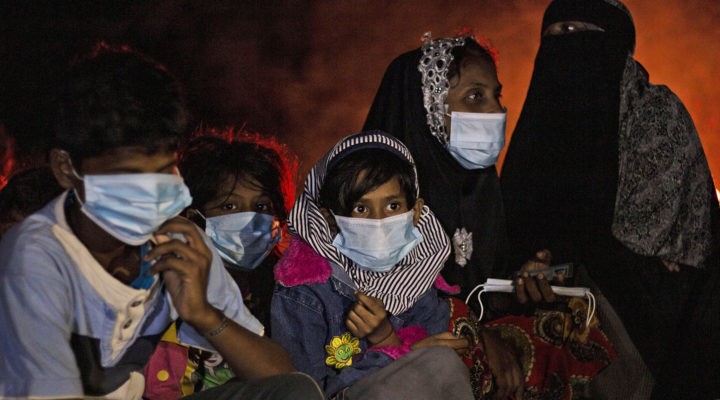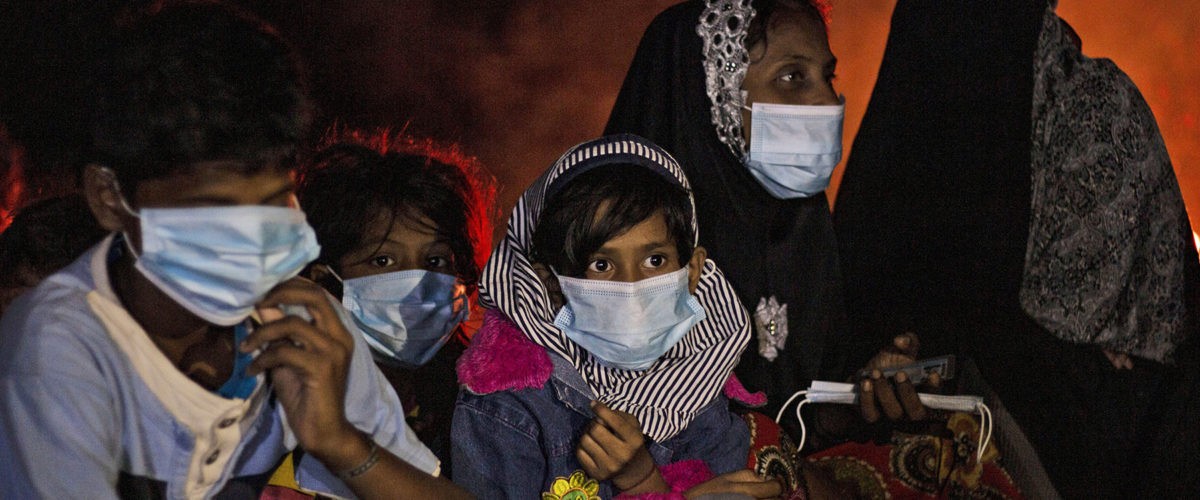Imagine the conflicts that could be ended and prevented if the world’s faith leaders got to know one another and began to advocate for those experiencing religious persecution everywhere, said Sam Brownback, the former U.S. ambassador for international religious freedom under Donald Trump.
Brownback spoke during “In Solidarity with the Persecuted,” an opening day session of the July 13-15 International Religious Freedom Summit in Washington D.C., which he helped to organize.
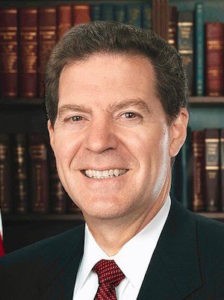
Sam Brownback
“What wars could we stop in the world, what carnage and killing could we stop with that alone? And then, what if we stood up for each other’s’ fundamental human right to practice your own faith as you see fit? And what if we meant it? This is a powerful force for good in a world that’s headed toward more carnage if we don’t stop this clash of civilizations, and most civilizations are built on religion,” Brownback said.
“We need to stand up for each other … . If we are going to get religious freedom for everybody, everywhere, all the time, we have to fight together. We have to stand together,” he said. “That’s what this summit is all about.”
The IRF Summit brought together 70 convening organizations, 30 distinct religious groups and drew 700 people of faith from around the world for the in-person event and even more who viewed online. The gathering was preceded by an in-person and virtual week of Congressional advocacy during which participating organizations scheduled appointments on Capitol Hill to press home the challenges facing their communities.
Christian, Falun Gong, Hindu, Jewish, Muslim, Sikh and Yazidi representatives briefly shared information about the persecution of other faiths, and the oppression of their own groups were detailed by others.
Those efforts culminated with the July 13 solidarity side event that featured the representatives of persecuted religious groups speaking on behalf of oppressed traditions other than their own.
“We are trying something unique: to showcase the power of faith communities working together to advocate for each other,” said Amjad Mahmood Khan, U.S. public affairs director for the Ahmadiyya Muslim community and convener of “In Solidarity with the Persecuted.”
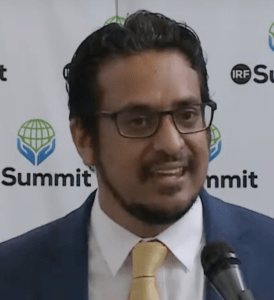
Amjad Mahmood Khan
It is common to see the members of persecuted faiths around the world standing up for their own rights and seeking to rally support. And often they have been effective, Khan said, comparing such efforts to individual musical choruses.
“But what we wanted to also have is a symphony, an ability to conduct a program that brings together diverse voices speaking for each other — the persecuted standing with the persecuted. A very simple-but-powerful symbol that when one persecuted community suffers, we all suffer. It’s like we’re one body and when one limb is suffering, we’re all suffering.”
To illustrate, Christian, Falun Gong, Hindu, Jewish, Muslim, Sikh and Yazidi representatives briefly shared information about the persecution of other faiths, and the oppression of their own groups were detailed by others.
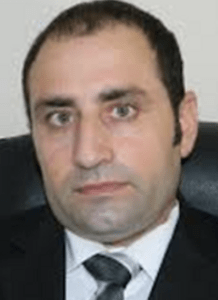
Haider Elias
Haider Elias, president of Yazda, a global organization representing the monotheistic Yazdi minority in Iraq, spoke on behalf of the world’s 30 million Sikhs.
“In India, the rise of religious extremism and racism pose an existential threat to Sikhs and many other religious communities,” Elias said. “And the persecution has even come to Western shores. Hate crimes against Sikhs and workplace discrimination have increased in the United States, United Kingdom, Australia and many other countries.”
Sikhs were targeted by a white supremacist gunman who killed six members of the faith in Wisconsin in 2012 and, as Elias noted, again in an April workplace shooting in which four members of the faith were killed in Indianapolis.

Wai Wai Nu
Rohingya Muslim Wai Wai Nu, a human rights advocate from Myanmar, spoke up for the world’s Jewish population, which is experiending a rise in anti-Semitic violence in the U.S.
“In Europe, too, verbal and physical attacks on Jews, the vandalism of businesses and synagogues and the desecration of cemeteries all reflect a troubling increase in anti-Semitism,” she said. “That must be addressed through a concerted effort of government and civil society. As a Muslim and member of Rohingya community facing similar situations in Myanmar, I stand in solidarity with the persecuted.”
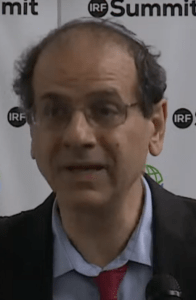
Daniel Spiro
Persecuted Christians were supported by Jewish speaker Daniel Spiro, co-founder and president of the Jewish-Islamic Dialogue Society of Washington, D.C.
“The global Christian community of 2 billion enjoys religious freedom in much of the world,” he said. “However, in countries such as Iraq, Afghanistan, India, Pakistan, China and North Korea, Christians often face bitter persecution.”
The expansion of ISIS has eliminated pluralism in parts of Africa where terrorists have targeted Christians, Spiro added. “Armed groups in sub-Saharan Africa are increasingly using sexual violence as a weapon to destroy religious communities, a heinous crime that goes largely unpunished.”
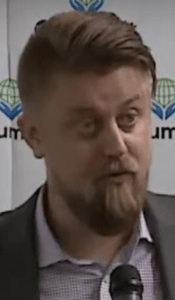
Matias Perttula
Ahmadiyya Muslims, who are mainly concentrated in south Asia, were spoken for by Matias Perttula, director of advocacy at International Christian Concern.
“They are one of the most persecuted Muslim communities in the entire world — vilified, disenfranchised and even lynched because of their faith,” he said.
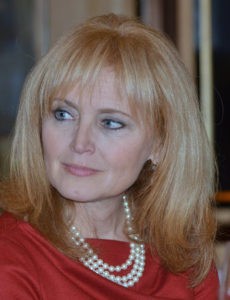
Katrina Lantos Swett
Summit co-Chair Katrina Lantos Swett, president of the Lantos Foundation for Human Rights, said the idea of faith groups looking out for each other will send a powerful message about the need for everyone to enjoy freedom of religion.
“I love the theme of persecuted communities standing together, supporting one another, defending one another’s rights,” she said. “The rights of one are the rights of all. Now, we link arms and we move forward together.”
Related articles:
Global study finds when religion seeks political dominance, the faith suffers
BWA begins World Congress with emphasis on religious freedom for all
Asia Pacific region leads the globe in increasing restriction of religious faith

